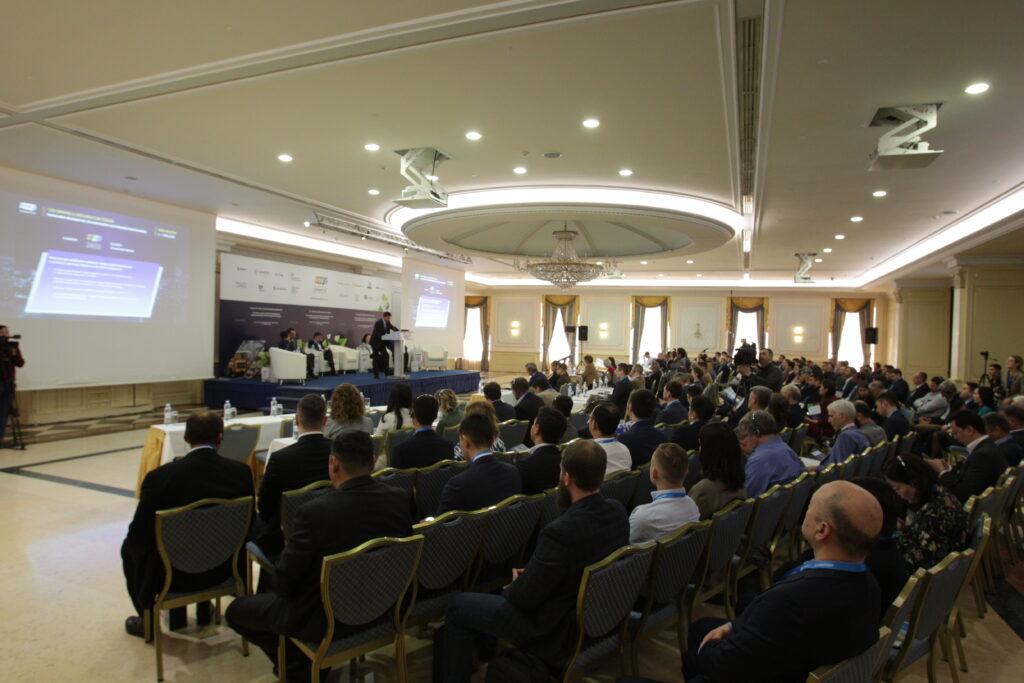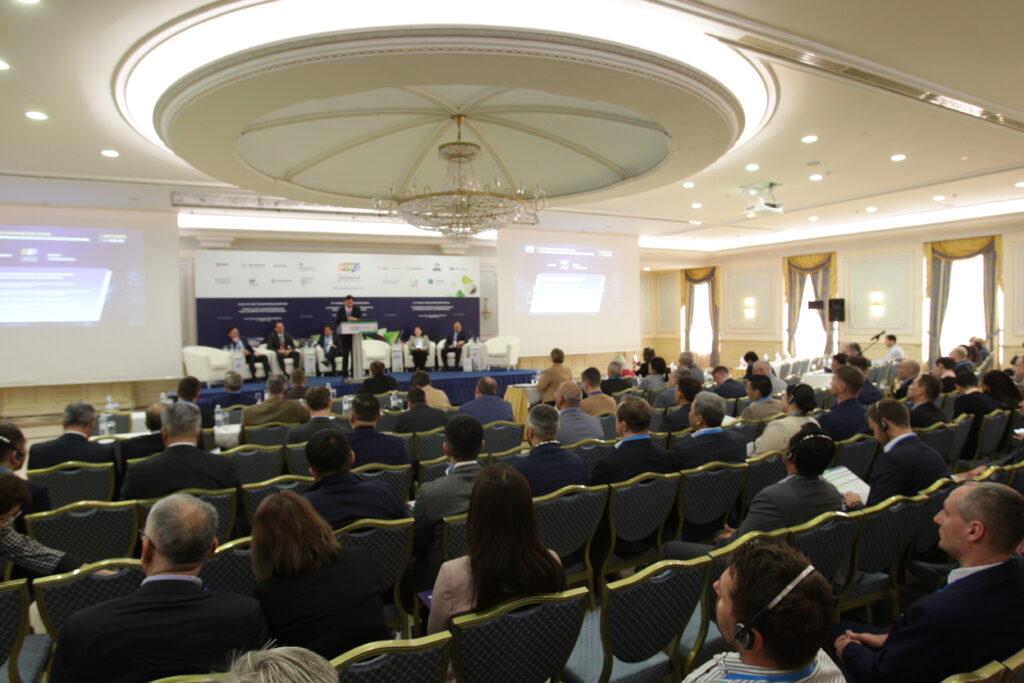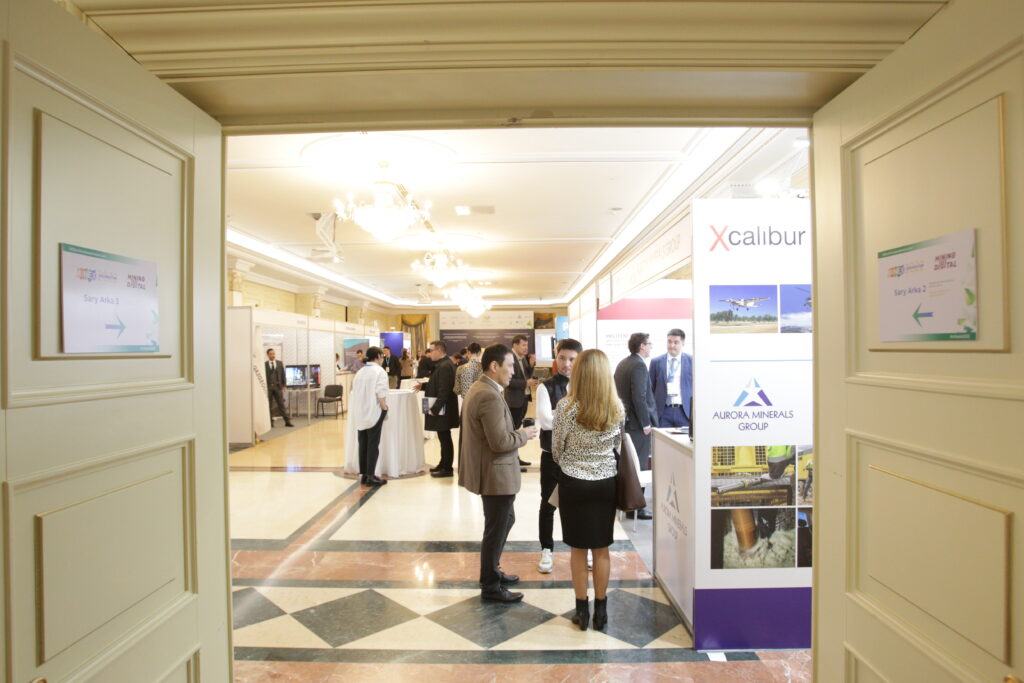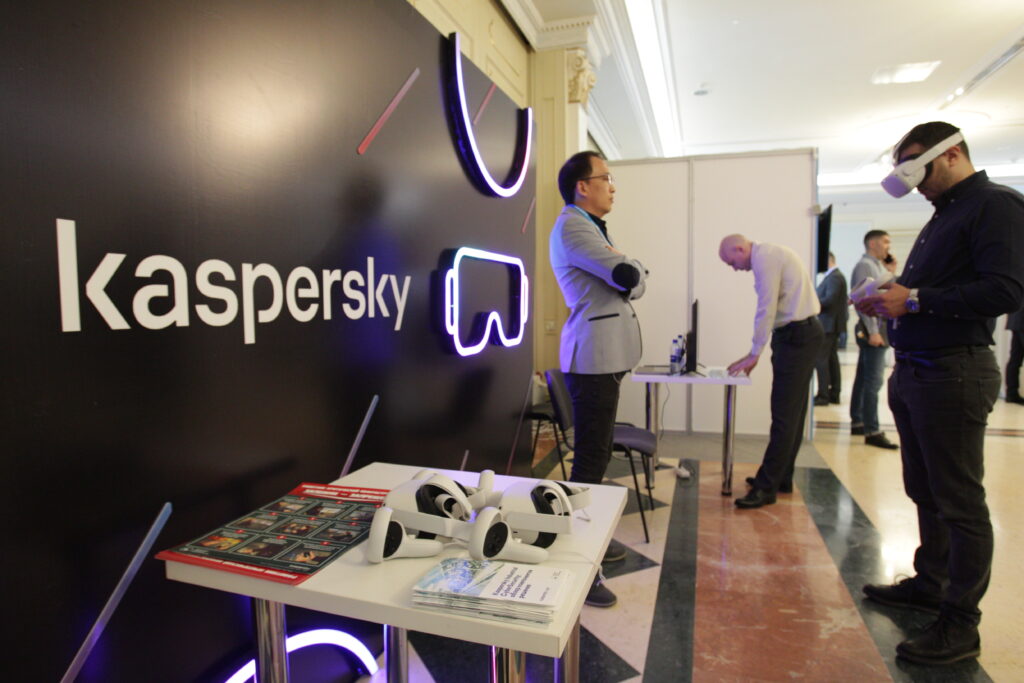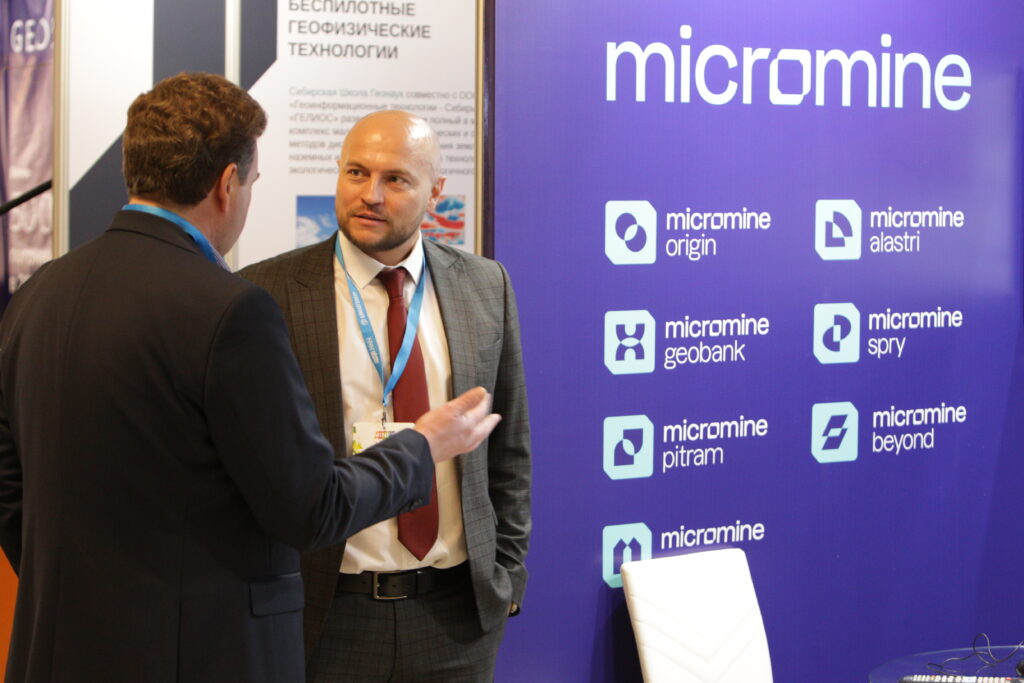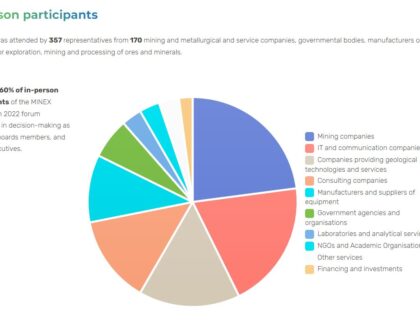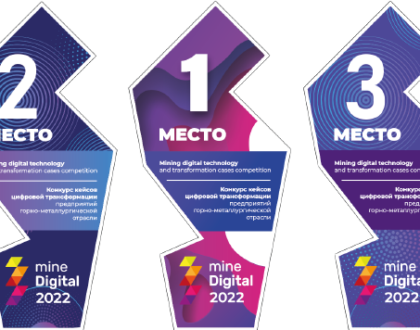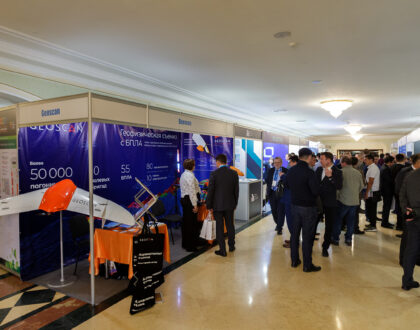The first day of the 12th International Mining and Geological Forum MINEX Kazakhstan 2022 ended in Nur-Sultan
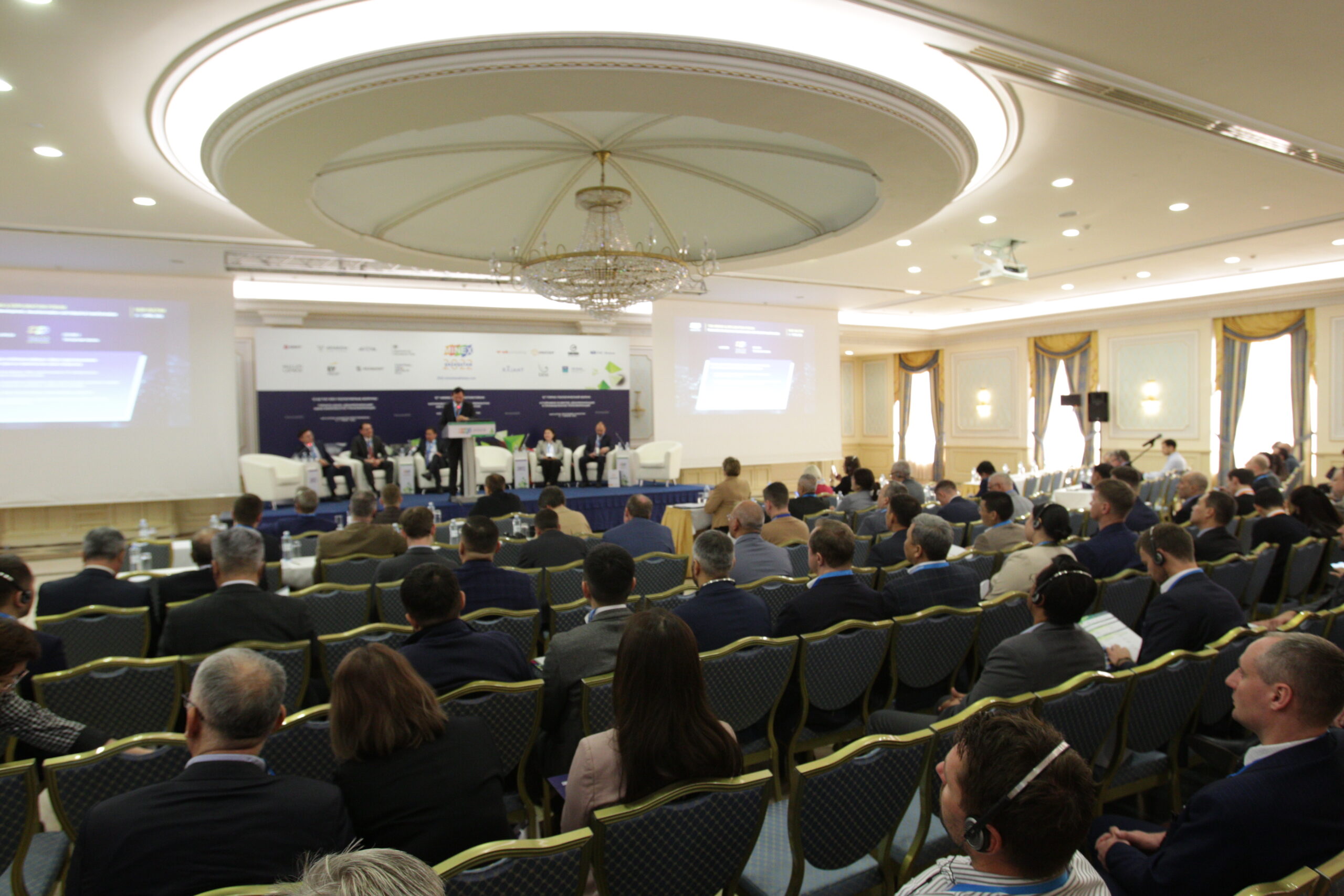
About MINEX Kazakhstan forum
MINEX Forum has been organised in Kazakhstan since 2010 and is one of the most representative industry events in the Central Asian region.
More than 300 full-time and over 1,000 remote participants attended MINEX Kazakhstan 2022. During the two days of the Forum, presentations of over 70 experts from Kazakhstan, Russia, Uzbekistan, Kyrgyzstan, Great Britain, Germany, Australia, Canada, the USA, New Zealand, Finland and Spain took place. More than 40 technological and service companies developing projects in Kazakhstan were presented at the exhibition, organized at the forum site.
First Day Overview
On 6 April, Vice Minister of Industry and Infrastructure Development of the Republic of Kazakhstan Ruslan Baimishev and Ambassador of Her Majesty the Queen of Great Britain Katie Leach made welcoming speeches to the participants.
First session
The Forum began with a plenary session under the general theme “New impetus for the development of metals and mining in Kazakhstan. Expert Panel“. In the first part of the session, experts discussed the bug challenges for the mining and metallurgical industry of Kazakhstan and possible solutions.
The discussion was attended by Ruslan Baimishev – Vice Minister of Industry and Infrastructure Development of the Republic of Kazakhstan, Nikolay Radostovets – Executive Director of the Republican Association of Mining and Metallurgical Enterprises, Diyar Ereshev – Member of the Working Group on the Development of the Subsoil Code, Kazakhstan Bar Association, Almat Daumov – Partner of GRATA International and Zarina Baikenzhina – Senior Associate Holler Lomax.
The following topics were highlighted at the session:
- Increasing financial burden on the MMC (cost growth, industrial inflation; increase in mineral extraction tax rates and the introduction of OPVR – from 2023; obligations to introduce BAT, or an increase in environmental payments – from 2025; the introduction of the EU “carbon tax” – from 2026).
- Deterioration of the quality of the mineral resource base (exhaustion of reserves of rich deposits, low replenishment rate, lack of flexibility in the taxation system).
- The necessary transformation of the coal industry (production of products from coal with high added value, development of exports, introduction of promising coal combustion technologies, “socially fair” energy transition).
During the discussion, experts proposed possible ways to solve problems related to administrative and tax management issues in the field of subsoil use.
Problem. Land disputes of subsoil users during the transition to the production stage are associated with the inaction of Akimats and, as a result, put the “exclusive right to production” at risk.
Decision. As a possible solution, it was proposed to provide for the right of the local executive body to seize land for state needs in subsoil plots for mining.
Problem. The principle of “one mining license – one subsoil plot” has created problems of administration (separate accounting, mining plan, liquidation plan, etc.).
Decision. To solve the problem, it is necessary to provide for the possibility of having several TPI production sites under one mining license if they are part of the same field.
Problem. The increase in the severance tax rates and the abolition of the dividend tax and growth tax exemption for projects with deep processing of the TPI require a more detailed study of the impact of the mineral extraction tax rates on the rational and integrated development of subsoil.
Decision. Experts consider it necessary to work out the Rules for classifying TPI fields as low-margin, as well as to resolve the issue of maintaining benefits for deep processing.
Problem. Liquidation Insurance: Often the costs exceed the EMR for exploration operations.
Decision. Annual insurance and binding to the content of the exploration plan.
After the discussion part, Serik Urbisinov, Chief Resource Geologist, CSA Global (a company of the ERM group) made a presentation ” KAZRC: Why codes are integral to attracting global mining investment in Kazakhstan”. Colin Hay, Executive Vice President, EMEA, Seequent spoke about the potential opportunities and benefits of digital transformation in geological exploration in Kazakhstan. The session was concluded by Roman Mezhuev, CEO, BrainHunt, who made an overview report on the topic ” Labor Market in the Mining Industry of the Republic of Kazakhstan”.
Second session
After the break, the forum continued its work with a session on the topic “Development of promising mineral projects with the participation of national and international companies“. The participants of the session were introduced by its moderator – Said Sultanov, Partner of the service geological exploration company Aurora Minerals Group. The session was opened by Talgat Satiyev, Chairman of the Geology Committee, Ministry of Ecology, Geology and Natural resources of the Republic of Kazakhstan with the report “On the development of the geological industry of Kazakhstan”,
At the moment, Kazakhstan is actively discussing the issue of creating the National Geological Service on the basis of the National Geological Exploration Company “Kazgeologiya” and the Republican Center for Geological Information “Kazgeoinform”. The activities and development plans of these organizations were presented at the session by the Chief Geologist of the ” Qazgeology ” Berikbol Khamzin and the General Director of “Kazgeoinform” Zhanat Karibayev.
Kazakhstan is the world’s 5th largest producer of lithium with proven reserves of 50,000 tons and new large deposits under development. Anna Fardell, Senior Resource Geologist, SRK Consulting (Kazakhstan), told the participants about the prospects for the development of lithium potential in Kazakhstan.
Geological prospecting studies are associated with high risks. Discovering a world-class deposit is a rare stroke of luck. Alex Walker, CEO of the British junior company East Star Resources, is engaged in the search for new deposits of gold, copper, and non-ferrous metals in Kazakhstan. The company expects success thanks to a professional team with successful experience in almost all corners of the planet, innovative technologies and, of course, geological success.
Oleg Telnoy, Business Development Director of another British company, Central Asia Metals, spoke about the sustainable and responsible production of copper in Kazakhstan to provide value to all stakeholders. The company plans to expand its business in Kazakhstan and is actively looking for new investment projects.
Kazakhstan private investment company Recourses Capital Group considers geology exploration as a tool for value creation. Nariman Absametov, Investment director, spoke about the company’s experience in creating the value of search projects and managing investment risks characteristic of Kazakhstan.
Uzbekistan is the world leader in gold mining. According to Kitco’s estimate in 2020, the Uzbek mining complex of Muruntau produced more than 2 million ounces of gold. The resource base of Muruntau is estimated at 150 million ounces, which at the current production rate will ensure gold mining for 70 to 80 years. In addition to existing deposits, Uzbekistan has a high mineral resource potential. Strategies for the development of geological exploration in the Republic of Uzbekistan for the long term were presented at the session by the Director of the State Institution “Institute of Mineral Resources” Azimjon Holikov.
Third session
The third session was held under the theme ” Carbon neutrality strategies“. The mining and metallurgical industry is one of the three largest air pollutants. If Kazakhstan fails to meet its obligations to reduce greenhouse gas emissions, companies may lose their positions in the world market due to non-compliance with “green” standards. Achieving the goal of reducing industrial carbon emissions by 19% by 2030 and carbon neutrality by 2060 will require a clear action plan and coordination. To fulfill their obligations, industries need to significantly increase investment in the development of “green” technologies. Many companies are developing plans to drastically reduce carbon emissions. However, the transition to carbon neutrality will require huge investments in new production and energy technologies.
The session was opened Victor Kovalenko, Partner and Head of Climate Change and Sustainable Development Services Practice Ernst & Young – Consulting Services.
In his speech, he presented a problematic report on the topic “Kazakhstan’s Mining Agenda towards a Zero Carbon Footprint». After him, he performed David Pearce, Managing Director SRK Consulting (Russia) who provided practical examples of problem solutions for decarbonization in the mining industry implemented in the last few years. Then, Francisco Igualada, An International Consultant on the Mining Industry of the World Bank, remotely joined the session. He presented the scenarios for the decarbonization of mining and metallurgical enterprises in the Karaganda and Pavlodar regions and spoke about the opportunities for the development of a new “green economy”. The presentation attempts to shed light on issues related to the challenges of reducing carbon emissions in the mining industry and the fact that decarbonization, if properly planned and well implemented, will lead to greater efficiency in mining. Further, the focus shifted to the issues of setting and fulfilling the goals of scientifically based decarbonization. Christopher O’Brien, Senior Consultant (ESG), SRK Consulting (UK) spoke about modern practices in ESG planning. For many large industries, the transition to carbon neutrality is associated with the use of digital technologies that allow processing and analyzing a huge amount of data coming in real time from sensors, machines, and equipment. Sergey Yelshin, Director of Business Development, Mining and Metallurgy, AVEVA, spoke about the role of industrial digital transformation in reducing the environmental impact of production. At the end of the session, Telman Shuriev, Chief Expert of the Production Department, Kazatomprom presented Plans for decarbonization of production, and Talgat Torebekov, Director of the Department of Environmental Protection, “Eurasian Group” spoke about the implementation of the strategy of sustainable ecologisation of enterprises ERG.
Fourth session
The fourth session was held in the format of a discussion on the trends and prospects of
ESG financing in the mining industry. Achieving carbon neutrality in industrial production requires significant costs both on the part of companies and financial institutions, as well as the state. To stimulate ESG financing, incentives and other instruments are being discussed at various levels. Credit institutions and stock markets are developing new criteria. Raising financing for green and adaptation projects helps companies improve ratings and market value. Companies are developing responsible financing tools that allow them to raise funds for the implementation of projects aimed at changing climate impacts and green projects, including waste management, energy, construction, transport, water supply, biodiversity, and environmental protection. In discussion participated Victor Kovalenko,
Partner, Head of Climate Change and Sustainability Services practice, EY; Sergey Sidorkin, Deputy Director along socially-Economic Projects “IMC Montan”; Aidar Kazybayev, Chief Executive Officer, IFC Green Finance Centre, Akop Kagramanyan, Principle Banker Natural Resources, European Bank Reconstruction и Development (EBRD); Jane Joughin, Corporate consultant (ESG), SRK Consulting (UK); Georgiy Freiman, Chairman, Public Union Independent Experts Bowels (PONEN); Katya Gorbatyuk, Primary Capital Markets – CIS & Central Asia, Sustainable Finance Committee and Asem Kernebayeva, Manager director – Chief Directorate along Green и Social Initiatives, Eurasian Development Bank.
Fifth session
The final session of the first day of the forum was devoted to the issues of closure of deposits and reclamation of lands and waters. the Session was held with the support of SRK Consulting (Kazakhstan).
According to official data, about 8 thousand fields operate in Kazakhstan today, all of them were discovered in the years of the USSR. But many of the deposits of lead, copper and a number of rare metals are on the verge of depletion and in 10-15 years will be produced. The closure of the fields is associated with operational and social challenges. Following the depletion of minerals and metals, mining companies are responsible for the reclamation of land and water resources, focusing on environmental issues such as biodiversity conservation and restoration of pre-existing ecosystems. This is a technologically complex and expensive process that is usually taken into account in the early stages of mine design and development. The process of closure of deposits in Kazakhstan began relatively recently and practical experience in solving problems is critical to ensuring the sustainable development of the mining industry. In the East Kazakhstan and Karaganda regions, mass closures of city-forming deposits have already begun. It is assumed that in 5-20 years a number of other fields in the east of Kazakhstan will be closed. The closure of enterprises will lead to socio-economic problems that need to be urgently addressed.
Mike Beare, Director and Corporate Consultant (Mining), SRK Consulting (Kazakhstan), took part in the discussion of the problems of transition to new requirements for the closure of deposits; Sandugash Abdizhalelova, Consultant Ecologist, SRK Consulting (Kazakhstan) and Nikolai Kirillov, Senior Environmental Consultant, SRK Consulting (Kazakhstan).
Then there was a presentation of technological solutions successfully used in the closure of spent fields in Kazakhstan, European countries, and South Africa. Eleanor Widzik-Capehart, Associate Professor, Nazarbayev University spoke about the use of new wireless smart sensors to measure ground movement in quarries and underground mines. Eugene Louppov, Regional Director, Insight Terra presented the experience of monitoring decommissioned tailings ponds. The session was concluded by François du Toit, Consultant Geotechnical Engineer, SRK Consulting (Kazakhstan) with a presentation “TSF monitoring as an assistant in the development of TARP for closure”.
Business Track
In parallel with the forum, a business track was held at the exhibition site on the topic “Technological solutions to improve the efficiency of mining and geological prospecting operations”. It presented modern geophysical equipment of the company GEODEVICE; innovative drilling tools of “MUD MASTER”; Geophysical survey technologies of Geoscan; Mineral targeting and certification of SRK Exploration Services results; Automation of geological exploration operations using MEFFA Lab handheld analyzers; Inflatable packers for hydrogeological works in Exostra wells; Engineered Solutions “Colid Drilling Solutions Qazaqstan”; Casesthem Lab “Stuart Essays End Environmental Laborathoris“, Modern Strategies for Ore Prospecting “GM Service”; Technologies of strengthening weak soils of AsiaGeoCenter-kz and Electric Heating Systems of nVent Thermal KZ.
Related Posts
April 15, 2022
MINEX Kazakhstan’22 Forum summary
April 7, 2022



